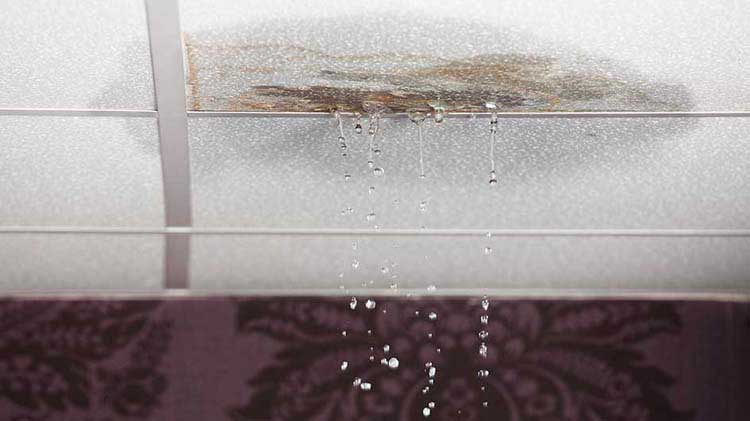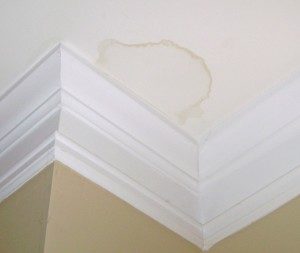Expose Common Roots of Leakage Inside The House
Expose Common Roots of Leakage Inside The House
Blog Article
We have uncovered the article on Most Common Causes of Leaky Pipes down the page on the internet and thought it made perfect sense to write about it with you on this page.

Leaks not just create waste of water yet can also trigger unneeded damages to your residence and promote unwanted organic growth. Water leakages may go unnoticed because many of the pipework in our residence is hidden. By recognizing as well as looking for everyday scenarios that trigger leaks, you can protect your residence from future leakages and unneeded damage. Today, we will check out six leakage triggers that may be triggering your pipelines to drip.
Trespassing origins
Most water leaks begin outside your house instead of inside it. If you discover a sudden decline in water pressure, state in your tap, require time to head out as well as examine your yard. You might observe damp spots or sinkholes in your yard, and that might mean that tree roots are invading water lines triggering water to leak out. You can have your plumber look for breach, specifically if you have trees or bushes near your property.
Corroded water supply
As time passes by, your plumbing system ages as well as corrosion such as rust may start eating away the pipelines. This may be the source of staining or bending on your water pipes. This asks for an inspection with your plumber quickly. Consider changing the pipes considering that they are at a greater danger of deterioration than the more recent designs if our plumbing system is old.
Defective Pipe Joints
The factor at which your pipelines attach is frequently the weakest link in the waterline. Pipeline joints can deteriorate in time, leading to water leakages. The bulk of pipeline joints are not conveniently noticeable. If you have loud pipes that make ticking or banging noises, specifically when the hot water is activated, your pipeline joints are possibly under a great deal of stress. It is advisable to have your plumber evaluate your system yearly.
Immediate temperature modifications.
Extreme temperature changes in our pipes can create them to increase as well as acquire unexpectedly. This expansion and also tightening may cause cracks in the pipelines, particularly if the temperature are below freezing. It would certainly be best if you kept an eye on just how your plumbing works. The existence of the formerly pointed out scenarios frequently shows a high danger.
Poor Water Connectors
At times, a leak can be caused by loosened hose pipes and also pipelines that supply your devices. In situation of a water links leak, you might discover water running straight from the supply line or puddles around your devices.
Clogged Drains
Blocked drains pipes might be irritating as well as inconveniencing, but they can occasionally wind up creating an overflow bring about rupture pipes. Maintain removing any type of materials that may drop your drains that can block them to avoid such troubles.
All the above are reasons for leaks yet not all water leaks result from plumbing leakages; some leaks might come from roofing leakages. All leaks must be repaired promptly to prevent water damage.
Leaks not only trigger waste of water but can likewise cause unneeded damage to your home and advertise unwanted natural growth. By looking and comprehending for daily scenarios that cause leaks, you can shield your home from future leakages and unnecessary damages. Today, we will certainly look at 6 leak triggers that might be causing your pipes to leak.
At times, a leakage can be created by loosened tubes as well as pipelines that provide your devices. In case of a water connections leakage, you may observe water running straight from the supply line or pools around your home appliances.
Tell-Tale Signs of a Water Leak
The Sound of Running Water
If you’re hearing water running, your first step should be to check your faucets, toilet valves, and outdoor spigots. If everything if status quo, take an exact reading of your water meter and don’t use the water for a few hours. Then, take another meter reading. If there has been no change, that means water is not running (and maybe it’s time to have your hearing checked!). If the reading has changed, however, this indicates that water is indeed flowing and you most likely have a leak.
Wet or Damp Floors
You’re walking across your carpet and suddenly squish—your sock is soaked! The dog doesn’t look guilty and your child swears they didn’t spill anything. That means you’re likely looking at sewer leakage. Now, it’s easy to just soak it up with a towel and call it a day; however, this won’t stop the leak. Ignoring the problem allows moisture to build up, ultimately causing mold or mildew. Not only is this smelly, it can be very toxic and harmful to children, the elderly, pets, and those with weak immune systems. Don’t risk the health of your home and your family—call in a professional to take care of the problem.
Foul Odors
If there’s an unpleasant smell in your home and you can’t locate the source, don’t just light a candle or spray some Febreze. Funky smells are often due to mold and mildew, which spread fast under ideal conditions (optimal temperature and level of humidity). Growth begins within about 24-48 hours, and spores start to colonize in 3-12 days, becoming visible to the eye within about 18 days. If you think the odor is leak-related, get a plumber out as soon as possible to mitigate damage from rapid fungi growth (and rid your home of the foul odor).
Overgrowth in the Lawn
Unless you didn’t fertilize your lawn evenly, a lush patch of grass in a select area of your lawn, or concentrated wet spots, indicate pipe leakage which is acting as a fertilizer. Left untreated, hazardous bacteria in the underground waste will quickly turn into a messy situation, going from lush growth to lawn destruction.
Wall Cracks
Over time, even the littlest of leaks can cause cracks in the foundation of your home and compromise the entire structure. How does it happen? The leak continues hammering away at the same spot in the ground beneath your home, eventually causing it to shift slightly. Now, you’d never feel this shift, but your walls will. This can be a very dangerous situation, so if you’re seeing vertical or diagonal cracking in your walls it’s best to call a plumber right away.
https://www.expresssewer.com/blog/6-telltale-signs-of-a-water-leak-in-your-home

We were brought to that write-up on Common Water Leaks In House from someone on another website. Do you know about another person who is fascinated by the niche? Take a moment to promote it. I thank you for reading our article about How to Find Water Leaks.
Quick relief? Dial! Report this page